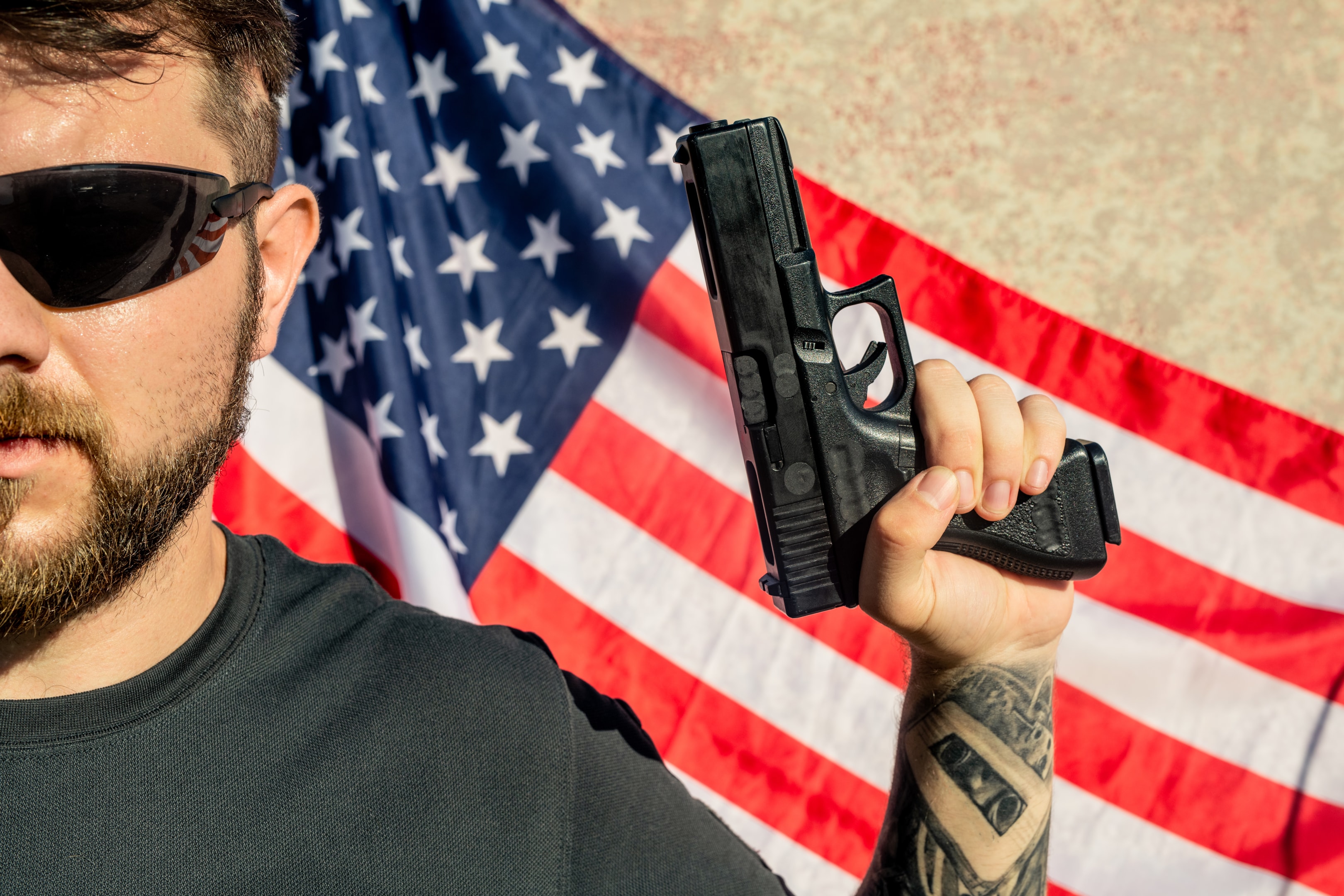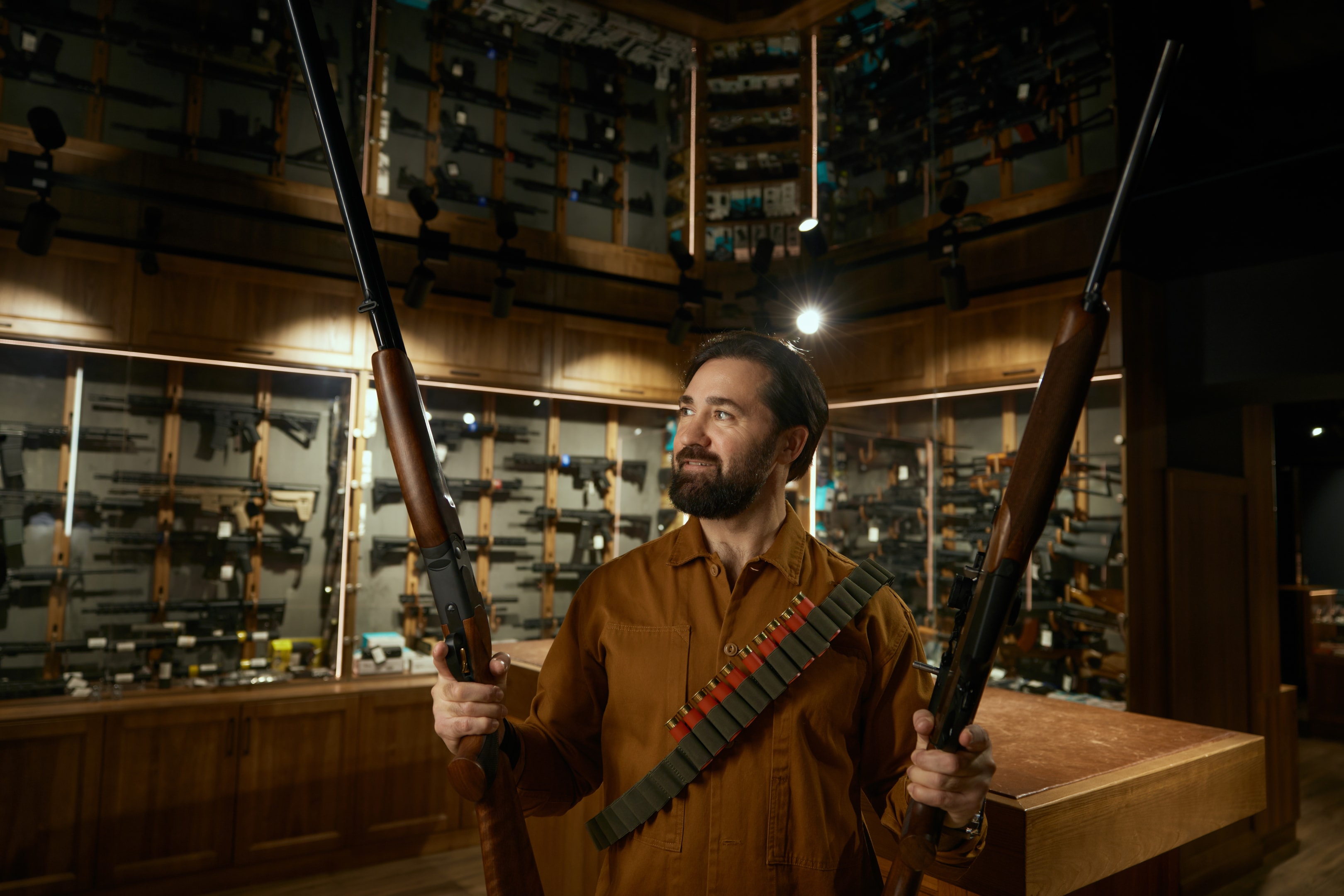CA Handgun Laws: A Comprehensive Guide

Introduction
California maintains some of the strictest gun laws in the United States, balancing public safety concerns with constitutional rights. These regulations cover everything from firearm purchases and firearm registration to concealed weapons and assault weapons. Understanding these laws is essential for gun owners and those considering firearm ownership in the state.
California’s gun laws are primarily codified in the California Penal Code, with various sections addressing different aspects of firearm regulation. The California Department of Justice oversees the implementation and enforcement of these California laws, working alongside law enforcement agencies across the state. California’s gun laws are known for their complexity, involving stringent requirements and ongoing legal challenges regarding their constitutionality.
Overview of California Gun Laws

California has some of the most restrictive gun laws in the United States. These laws are designed to promote public safety and prevent gun violence. The regulations cover a wide range of aspects, including who is prohibited from possessing firearms, the rules governing firearms dealers and sales, and the requirements for possessing and carrying firearms. Understanding these laws is crucial for anyone involved in firearm ownership or considering purchasing a firearm in California.
Who is Prohibited from Possessing Firearms?
Under California law, certain individuals are prohibited from possessing firearms. These restrictions are in place to enhance public safety and reduce the risk of gun violence. Individuals prohibited from possessing firearms include:
- Those convicted of certain crimes, such as felonies or misdemeanors involving violence or firearms.
- Individuals subject to a court order restraining them from owning or possessing a firearm.
- Persons adjudicated as mentally unstable or incompetent.
- Individuals addicted to narcotics or dangerous drugs.
- Those under 18 years old, unless accompanied by a parent or guardian who is not prohibited from possessing a firearm.
These prohibitions are strictly enforced to ensure that firearms do not fall into the hands of individuals who may pose a risk to themselves or others.
Purchasing Firearms in California

Firearm Safety Certificate Requirements
Before purchasing a handgun in California, residents must obtain a valid Handgun Safety Certificate (HSC). This certificate demonstrates basic knowledge of firearm safety and California’s gun laws. To obtain one, applicants must:
- Pass a written test administered by a DOJ certified instructor
- Demonstrate safe handling of firearms
- Pay a fee for the certificate
The HSC is valid for five years and applies to most handgun purchases within that period.
Background Checks and Waiting Periods
All firearm purchases in California must go through a licensed gun dealer. The dealer conducts a background check through the Department of Justice to ensure the buyer is not a prohibited person.
Key regulations include:
- Mandatory 10-day waiting period between purchase and delivery
- Limit of purchasing more than one handgun in a 30-day period
- Requirement to present a valid California driver’s license or ID card
- Completion of a safe handling demonstration
Safe Storage Requirements
California law requires firearms to be stored safely when not in use, especially in homes with minors. Firearms must be kept in a locked container or disabled with a locking device when stored.
It is illegal to store a loaded firearm in certain public places, and violations can result in misdemeanor or felony charges.
Firearms Dealers and Sales
In California, only licensed firearms dealers are authorized to sell firearms. These dealers must possess a valid Certificate of Eligibility (COE) and comply with all applicable state and federal laws. The California Department of Justice oversees the licensing and regulation of firearms dealers to ensure compliance with these laws.
Who May Sell Firearms?
Only licensed California firearms dealers who possess a valid Certificate of Eligibility (COE) are authorized to engage in retail sales of firearms. These dealers must adhere to all applicable state and federal laws, including the requirement to conduct background checks on all firearm purchasers. This ensures that firearms are sold only to individuals who are legally permitted to own them, thereby enhancing public safety.
Restricted Firearms and Accessories
Assault Weapons
California has strict regulations on assault weapons. These include:
- Ban on most rifles with detachable magazines and certain features
- Registration requirements for previously owned assault weapons
- Restrictions on transfer of registered assault weapons
- Prohibition on bringing most assault weapons into the state
Large Capacity Magazines
Large capacity magazines (those holding more than 10 rounds) are generally prohibited in California. The law:
- Bans manufacture, import, sale, transfer, and receipt
- Prohibits possession in most circumstances
- Provides limited exceptions for certain law enforcement officers and other authorized individuals
What are the Rules on Ammunition and Gun Accessories?
In California, the sale and possession of ammunition and gun accessories are regulated by state law. For example, the sale of large-capacity magazines, which hold more than 10 rounds, is prohibited. Additionally, the possession of certain types of ammunition, such as armor-piercing bullets, is also prohibited. The sale and possession of specific gun accessories, such as silencers and flash suppressors, are regulated to prevent their misuse. These regulations are part of California’s comprehensive approach to gun violence prevention, ensuring that both firearms and their accessories are controlled to enhance public safety.
Carrying Firearms
Concealed Carry Laws
To carry a concealed firearm in California, individuals must obtain a Concealed Carry Weapons (CCW) permit. The process involves:
- Application through local law enforcement agency (usually sheriff)
- Demonstration of “good cause” for needing to carry
- Background check and character references
- Completion of firearms training course
Recent Supreme Court decisions have impacted how these permits are issued, with some counties adjusting their “good cause” requirements.
Open Carry Restrictions
California generally prohibits the open carry of firearms in public places, with limited exceptions for:
- Law enforcement
- Individuals in specific occupations
- Certain areas like private property with permission
- Specific circumstances such as hunting in designated areas
Private Transfers and Registration
The Private Party Transactions
Private party transactions must be conducted through a licensed firearms dealer, who facilitates:
- Background check on the buyer
- 10-day waiting period
- Proper registration with the California Department of Justice
- Verification of the Firearm Safety Certificate
California’s firearms laws are notably complex and strict, governing private party transactions with detailed requirements and legal obligations.
Registration Requirements
Most firearms in California must be registered with the state. This includes:
- All handguns purchased or brought into the state
- Certain rifles and shotguns
- Firearms transferred through inheritance
- Previously owned but unregistered firearms through specific programs
FAQs About California Gun Laws

- Q: Can I transport my firearm in my vehicle in California? A: Yes, but an unloaded firearm must be transported in a locked container. Handguns must be unloaded and locked in the trunk or a container that is not the glove compartment or utility box.
2. Q: Are there exceptions to the Handgun Safety Certificate requirement? A: Yes, exceptions include active or honorably retired peace officers, military personnel on active duty, and certain licensed firearms dealers.
3. Q: Can I bring my firearm from another state into California? A: If you’re moving to California, you must report any firearms you bring within 60 days. Certain firearms prohibited in California cannot be brought into the state regardless of legal status elsewhere.
4. Q: What constitutes a prohibited person in California? A: Prohibited persons include people with felony convictions, those convicted of certain misdemeanors, individuals with mental health prohibitions, subjects of restraining orders, and those addicted to narcotics.
5. Q: How do I know if my firearm is considered an assault weapon? A: California defines assault weapons by specific makes and models as well as features like detachable magazines combined with certain characteristics. The California Department of Justice maintains complete lists.
6. Q: Who is eligible to possess firearms in California? A: In California, eligibility to possess firearms is subject to various regulations. Individuals must be at least 18 years old to possess rifles and shotguns, and 21 years old to possess handguns. Those with felony convictions, certain misdemeanor convictions, mental health prohibitions, or restraining orders are prohibited from possessing firearms. Additionally, individuals must obtain the necessary permits and comply with all state and federal laws.
Did You Know?
- California first enacted gun safety legislation in 1917
- The state’s gun violence prevention efforts have been associated with lower firearm death rates compared to national averages
- California uses a unique system called the Armed Prohibited Persons System to identify and recover firearms from those who become prohibited after purchase
- The California Penal Code sections on firearms span hundreds of pages
- Antique firearms manufactured before 1899 are exempt from many California firearms regulations
- The National Rifle Association has challenged numerous California gun laws in court
- California is one of the few states that requires safety features on handguns certified for sale
- Gun violence restraining orders allow for temporary removal of firearms from individuals deemed dangerous to themselves or others
Special Circumstances and Exemptions
Law Enforcement Exemptions
Law enforcement officers have specific exemptions from various California gun laws, including:
- Ability to carry concealed while off-duty
- Exemption from magazine capacity restrictions in certain circumstances
- Special purchase provisions for law enforcement agency approved firearms
- Retirement provisions allowing retention of certain firearms
Interstate Travel
Federal law provides protections for travelers passing through California with firearms. Under the Firearm Owners Protection Act, individuals can transport firearms through California if:
- The firearms are unloaded and not readily accessible
- They are legal in both the origination and destination states
- The travel through California is temporary
- Ammunition is stored separately from the firearm
Firearms on School Grounds
Possession of firearms on school grounds is generally prohibited with limited exceptions for:
- Authorized peace officers
- Security guards with proper permits
- Specific school-sanctioned activities
- Unloaded firearms in locked vehicles (in some circumstances)
Recent Legal Developments
California’s gun laws continue to evolve through legislation and court challenges. Recent developments include:
- Challenges to the state’s “may issue” concealed carry system following Supreme Court decisions
- New requirements for gun dealers regarding storage and security
- Expanded red flag laws allowing more people to request gun violence restraining orders
- Age restrictions for purchasing certain firearms
- New requirements for firearm safety training
Understanding these ongoing changes is crucial for gun owners and anyone interested in firearm ownership in California.
- A.S.













